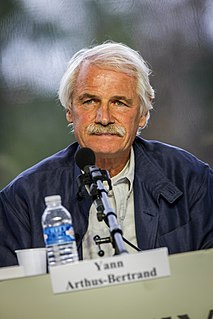Top 1200 Developing Countries Quotes & Sayings
Explore popular Developing Countries quotes.
Last updated on April 14, 2025.
As the photographer, it's challenging to make images that read quickly and are powerful, but have enough humanity and compassion. I've worked on these issues in the developing world because that's where the risk to girl's safety and access to education is the highest. But that doesn't mean that we don't have issues in the U.S. or western countries. For me, I focused on the developing world because it felt like the issue was more urgent there.
Even today to be civilised is held to be synonymous with being westernised. Advanced countries devote large resources to formulating and spreading ideas and doctrines and they tend to impose on the developing nations their own norms and methods. The pattern of the classical acquisitive society with its deliberate multiplication of wants not only is unsuited to conditions in our countries but is positively harmful.
Exporters monitor economic and political policies to the developing world, but the consequences of that have been to make developing countries far more sensitive to the constant fluctuations. Developing countries are not always allowed to support their farmers in the same way as the U.S. or Europe is. They're not allowed to have tariff barriers. They're forced, more or less, to shrink their social programs. The very poorest people have fewer and fewer entitlements. The consequence of this has been that there's been a chronic increase in the vulnerability of those economies to price shocks.
Some of the developing-country governments and populations are tired of having things rammed down their throats, but we're not yet at the stage we want to get to, namely where the developing countries join forces with one another on behalf of creative alternative ideas about how to take things forward.
When you go to China and the developing world, people understand more clearly the dangers that are coming at them because they're living closer to the margin. They don't have any of the false sense of invulnerability that Americans have. People from developing countries also feel that it's their right, if you're talking in terms of justice, to use fossil fuels like we did for a hundred years to get rich. It's hard for them to give up that vision.
Climate change is...a gross injustice-poor people in developing countries bear over 90% of the burden-through death, disease, destitution and financial loss-yet are least responsible for creating the problem. Despite this, funding from rich countries to help the poor and vulnerable adapt to climate change is not even 1 percent of what is needed.
One of the greatest concerns that I had when I became President was the vast array of nuclear weapons in the arsenals of the United States and the Soviet Union and a few other countries, and also the great proliferation of conventional weapons, non-nuclear weapons, particularly as a tremendous burden on the economies of developing or very poor countries.
A decade ago, critics suggested biotech crops would not be valuable in the developing world. Now 90 percent of farmers who benefit are resource-poor farmers in developing countries. These helped alleviate 7.7 million subsistence farmers in China, India, South Africa, the Philippines from abject poverty.

















































